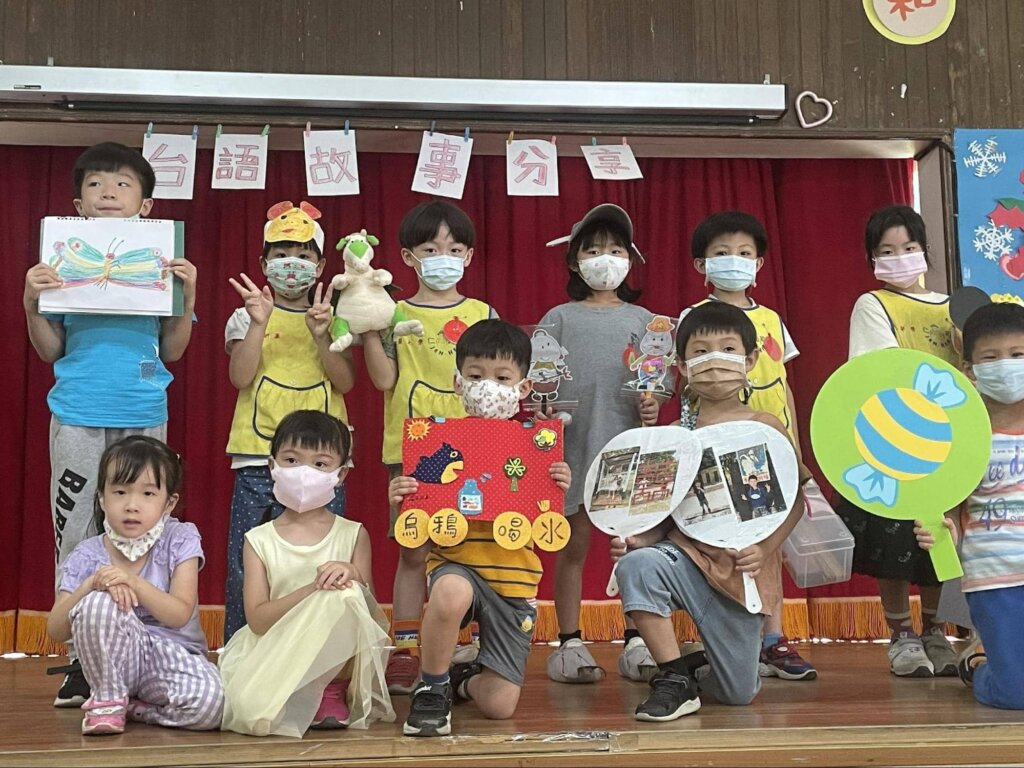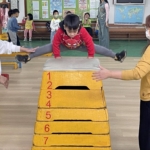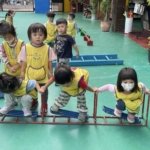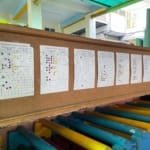
The Story Sharing Competition entered its final stage - Taiwanese - on Thursday. Nine children from the older class and two from the middle class participated in the competition, with a number of children dropping out due to the suspension of classes due to the epidemic; however, there were some children who came to school to participate in the competition.
On May 23rd, the government announced that schools at all levels would be closed, and many children followed their brothers and sisters in the elementary and middle schools in the country in suspending classes for three weeks.
During this period, the kindergarten also considered the idea of canceling the Chinese and Taiwanese storytelling contest, but thought that it would be a disappointment to the children who were interested in participating; last year, during the suspension of classes due to the Level 3 epidemic, we weren't afraid to take the trouble of conducting the contest online, and this year, with two-thirds of the children attending the school, it was even more important to hold the contest, and the idea of canceling the contest soon disappeared.
It saves time and effort to cancel and not organize. We are thankful that we were able to carry on with the program during this period, which was a blessing. The children who participated in the contest were very generous on stage, and told a fluent story to the audience in their seldom-used Taiwanese language. Although it only lasted for a minute or two, it took a lot of hard work to achieve the result of one minute on stage, and apart from the children's own motivation and encouragement from their teachers, the parents were the biggest driving force behind the scene and the credit goes to the children's parents.
From English, Chinese to Taiwanese storytelling, every child participated in the program prepared with all their heart, whether they volunteered or were assigned, and faced it bravely. From the moment they signed up to the moment they stepped on stage, it was a demonstration of self-training and responsibility, not only for themselves, but also for the class and the program itself, which is worthy of being recognized.
After the competition, the principal of the school talked to the children about their stories. The principal spoke in Mandarin and the children answered in Taiwanese to train their listening and speaking skills, and the older children did very well.
Verbal expression is a skill that needs to be practiced and practiced it is not only a way to know yourself, it is a key to the world. Share with your children that learning more of a language can help you speak to different people.
Ask your child: What language do you use with your grandpa and mom-Taiwanese; what about your mom and dad? What language do you use with grandpa and mom - Taiwanese; mom and dad - Mandarin or English; and foreigners - English. English. Language is an important asset for cultural preservation. In recent years, the government has been promoting mother-tongue teaching. In addition to Mandarin, Taiwanese, and English, the government also encourages children to learn a variety of mother tongues, be it Aboriginal, Hakka, or newer languages such as Vietnamese or Thai, which is a good way for children to get to know more about their own family members, cultures, and histories.
Every language has a unique cultural and historical significance, and sometimes just a common greeting can mean different things. Let your child learn about multiculturalism from his or her mother tongue, even if he or she only knows a few phrases of any language, it's still a wonderful thing.
I wish you all a happy holiday, good health, peace and happiness.
Mandy





